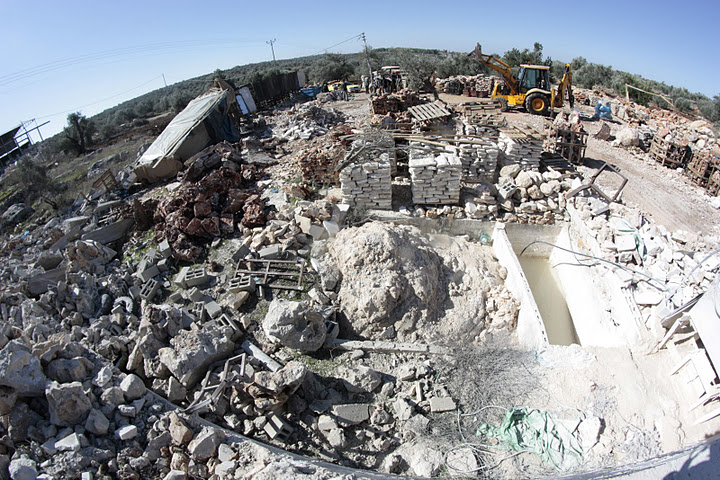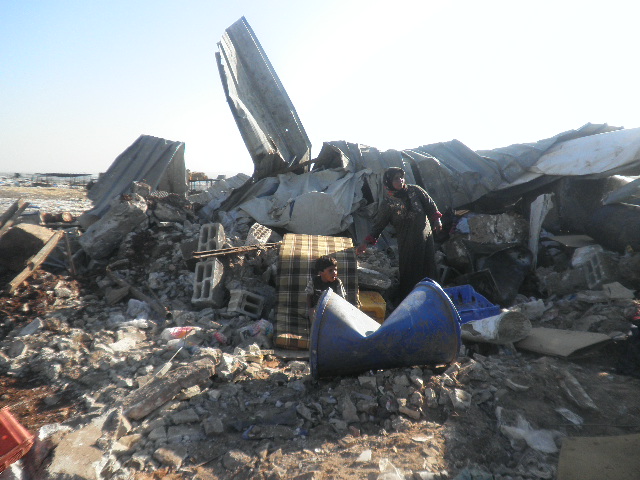Tag: Qalqilya
-

Home Demolitions: Child dragged out by his throat
by Sarah 5 December 2011 | International Solidarity Movement, West Bank On Monday the 5th of December, in the Azzun district of Qalqiliya, a stone factory was destroyed at 6:00 am. The owner, Hussain Anam, explained to us that the factory was built 3 years ago, but his only demolition notice was when the bulldozer…
-

Israeli forces destroy house and barn in the Bedouin village of Arab Abu Farda, south Qalqilya
1 June 2011 | International Solidarity Movement At 8am on Monday May 30, eight Israeli jeeps and two bulldozers destroyed two Bedouin “barracks” (shacks) in the village of Arab Abu Farda, south of Qalqilya. One of the barracks belonged to Abdul Qader and was home to 12 people and the other housed cows which belonged…
-
Settlers attack Palestinian vehicle with rocks, wounding four, and set fire to land in Qalqiliya district
International Women’s Peace Service 1 June 2009 On Monday, June 1st, settlers from the Havat Gilad settler outpost in the Qalqiliya district of the West Bank reportedly attacked a minibus transporting 17 Palestinians to their jobs in Israel, critically injuring one. The settlers later burned an estimated 100 dunams of Palestinian land, leaving scorched earth…
